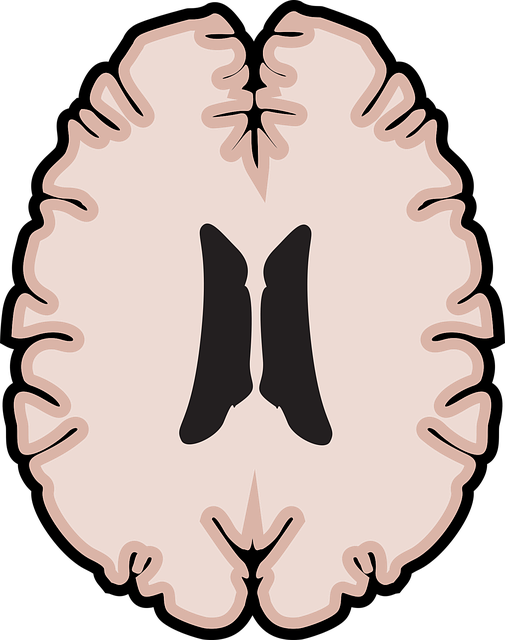Child therapy post-divorce tackles internalized parental conflict leading to anxiety, depression & low self-esteem. Therapists create safe spaces, tailor interventions to individual needs, and prioritize cultural competency. Risk assessment, crisis intervention training, and compassionate self-care prevent burnout. Structured interviews, observations, and self-report measures gather comprehensive data for tailored therapy. Case studies guide evidence-based interventions like stress management techniques for resilient emotional healing during life transitions. (Keywords: Therapy for Children Divorce)
“In the delicate field of mental health, especially when working with children post-divorce, risk assessment is a critical component for ensuring therapeutic safety. This article explores the unique risks inherent in child therapy during and after divorce, providing insights into identifying potential triggers for both children and parents. We delve into effective assessment tools and strategies to mitigate risks, offering practical guidance for mental health professionals. Through case studies, we demonstrate how navigating complex situations can lead to positive outcomes, emphasizing the importance of a comprehensive risk assessment approach in therapy for children dealing with divorce.”
- Understanding the Unique Risks in Child Therapy Post-Divorce
- Identifying Potential Triggering Events for Children and Parents
- Assessment Tools and Techniques for Mental Health Professionals
- Strategies to Mitigate Risks and Enhance Safety in Treatment
- Case Studies: Navigating Complex Situations and Achieving Positive Outcomes
Understanding the Unique Risks in Child Therapy Post-Divorce

Child therapy post-divorce presents a unique set of challenges and risks that mental health professionals must be adept at navigating. Children often internalize their parents’ conflict, experiencing anxiety, depression, and low self-esteem. Therapists need to create a safe, non-judgmental space where children feel comfortable expressing their emotions and fears associated with the divorce. Understanding each child’s individual needs and attachment styles is crucial for tailoring effective therapeutic interventions.
The complexity arises when addressing parental involvement, as co-parenting dynamics can significantly impact a child’s mental wellness. Healthcare provider training in cultural competency is essential to navigate these delicate situations, ensuring respectful communication and sensitivity to diverse family structures. Moreover, therapists must prioritize self-care routine development for better mental health to avoid burnout, enabling them to provide consistent and compassionate care throughout the therapeutic process.
Identifying Potential Triggering Events for Children and Parents

Identifying potential triggering events is a critical aspect of risk assessment for mental health professionals working with children and families. When a child experiences or witnesses trauma, such as the divorce of their parents, it can significantly impact their emotional well-being. This event might serve as a catalyst for various psychological challenges, including anxiety, depression, or behavioral issues. Mental health professionals must be attuned to these potential triggers to provide effective therapy for children.
By understanding the complexities surrounding divorce and its effects on young minds, therapists can design mental health education programs that empower both children and parents with coping skills development. These programs aim to facilitate emotional healing processes, ensuring that individuals learn healthy ways to process and manage their emotions during challenging life transitions.
Assessment Tools and Techniques for Mental Health Professionals

Mental health professionals employ a variety of assessment tools and techniques to accurately evaluate clients’ mental well-being, especially when dealing with sensitive issues like therapy for children post-divorce. These tools range from structured clinical interviews to observational assessments and self-report measures. Structured interviews, such as the Clinical Interview Questionnaire (CIQ), help professionals gather comprehensive information about a client’s history, symptoms, and functioning.
Additionally, mental wellness journaling exercises and communication strategies play a pivotal role in risk assessment. Encouraging clients to maintain a Mental Wellness Journal can provide valuable insights into their emotions, thoughts, and behaviors, facilitating self-awareness exercises that are essential for identifying potential risks. Communication strategies, tailored to each client’s needs, enable professionals to gather more detailed information, offering guidance on how to navigate sensitive topics like divorce while ensuring the child’s mental health and well-being.
Strategies to Mitigate Risks and Enhance Safety in Treatment

Mental health professionals must continually assess risks and implement strategies to mitigate potential hazards within their practice, especially when treating children undergoing parental divorce. One effective approach is incorporating compassion cultivation practices into therapy sessions. These practices encourage practitioners to develop self-awareness, foster empathy, and cultivate a non-judgmental attitude, which can enhance patient safety. By creating a safe, supportive environment, therapists enable children to express their emotions openly, thereby reducing the risk of trauma exacerbation or recurrence.
Additionally, crisis intervention guidance plays a pivotal role in ensuring the well-being of both clients and practitioners. Mental health professionals should be adept at recognizing early warning signs of distress and possess the skills to de-escalate high-risk situations effectively. Regular training sessions focused on crisis management, coupled with access to support networks, can substantially enhance the safety framework within the therapy setting. These proactive measures are integral to the Risk Assessment for Mental Health Professionals, aiming to provide compassionate and secure treatment, especially during sensitive periods like divorce adjustments in children’s lives.
Case Studies: Navigating Complex Situations and Achieving Positive Outcomes

In the realm of mental health practice, case studies serve as powerful tools to navigate complex situations and achieve positive outcomes, especially in scenarios involving therapy for children post divorce. These real-life examples illustrate the application of risk assessment strategies tailored to diverse client needs. For instance, a child experiencing anxiety after a parental divorce may present unique challenges requiring a comprehensive approach. Mental health professionals must assess not only the child’s emotional state but also their home environment, support systems, and potential triggers for distress.
By delving into such cases, mental wellness coaching programs development becomes more nuanced. Effective risk assessment involves identifying potential risks, such as trauma, attachment issues, or family conflict, and implementing evidence-based interventions promptly. Stress management techniques play a crucial role in fostering resilience and promoting mental wellness. Through case studies, professionals can learn from successful strategies, adapt them to individual needs, and ultimately enhance their ability to deliver high-quality care, ensuring positive outcomes for vulnerable clients navigating life transitions.
Mental health professionals play a vital role in supporting children navigating post-divorce situations. By understanding the unique risks involved, identifying potential triggers, and employing effective assessment tools, they can enhance safety and achieve positive outcomes. The strategies outlined, coupled with case studies demonstrating real-world application, equip practitioners to mitigate risks effectively and provide enhanced therapy for children divorce scenarios.














